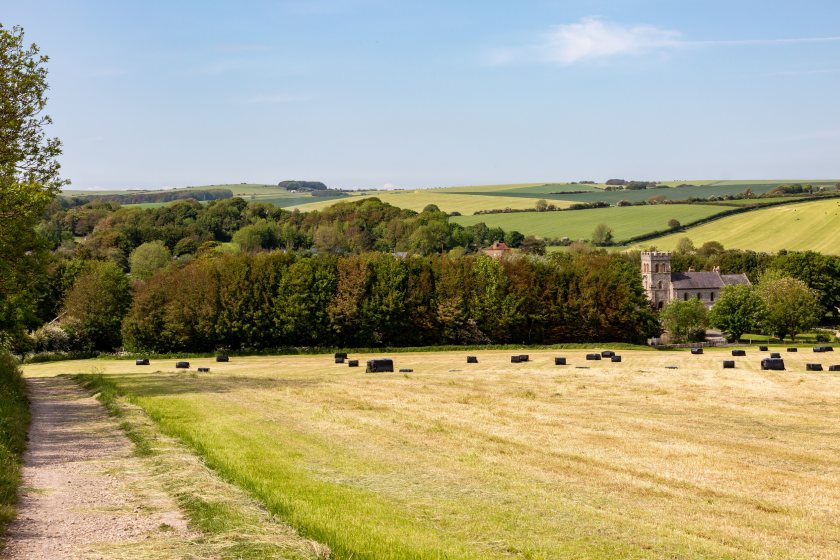
Sharp swings in farm incomes have exposed the fragility of farm finances, the NFU has warned, urging the chancellor to deliver stability in the budget as new Defra figures reveal dramatic year-to-year fluctuations.
Defra’s latest Farm Business Income data, covering March 2024 to February 2025, shows increases in most sectors except horticulture and specialist pig production.
But the NFU says the figures mask an even tougher year ahead, as they do not include the difficult 2025 harvest or the impact of the summer drought on feed and forage costs.
The survey continues a long-term pattern of extreme fluctuation. After a strong run for arable farmers between 2021 and 2023, income collapsed by 73% as yields fell and global prices dropped.
The dairy sector experienced a similar shock, with incomes plunging 68% in 2023/24 following cuts in the price paid for milk. Although the latest data indicates some recovery, farmgate milk prices have recently been cut again by up to 6p per litre, with some cheese contracts down by as much as 8p.
NFU President Tom Bradshaw said the figures highlight the scale of instability farmers face. “The impact of volatility is written large in these new Farm Business Income figures,” he said, noting that farmers already contend with extreme weather, fluctuating global markets and rising costs.
He argued that while producers accept income will vary, “it doesn’t seem like the government does”, pointing to what he called the snap decision to impose “a crippling tax on family farm businesses” at the last budget.
Mr Bradshaw said domestic policy must offer more certainty if farmers are to withstand external volatility. He warned that government choices — including the US trade deal, bioethanol policy and upcoming EU SPS talks — have already shaped demand and competitiveness. Boosting dairy exports, he added, would provide a more stable income base.
He warned that some horticulture businesses have already seen employment costs rise by hundreds of thousands of pounds due to last year’s tax changes, while others now face steep increases in electricity standing charges.
Meanwhile, many family farms across the UK have paused investment or expect to sell land simply to meet an inheritance tax bill “this government promised it wouldn’t impose”.
Mr Bradshaw said the budget offers the chancellor “the chance to do right by Britain’s farmers” by rethinking the family farm tax and using fiscal levers such as a higher Annual Investment Allowance and enhanced capital allowances to support business planning and investment.
He said these steps would signal that government understands how agricultural businesses operate and that greater stability is essential to building resilience and protecting home-grown food production.
The income data also shows that food production is no longer the main driver of profitability for many farms. In arable and livestock sectors, diversification and agri-environment schemes now provide essential support, yet delays to environmental payments in 2024 left many farmers struggling to plan.
With the Rural Payments Agency expected to begin payments from 1 December, the NFU is urging the agency to deliver at least 90% of Countryside Stewardship and Higher Level Stewardship payments by the end of December, with partial payments issued in the New Year for any outstanding claims, to protect farm cashflow.
NFU Deputy President David Exwood said environmental schemes are vital but come with “huge levels of uncertainty” because farmers have little idea when payments will arrive within a six-month window.
He said delayed or unpredictable payments make managing cashflow “incredibly difficult”, especially after a year of poor weather, rising input costs and continuing reductions in direct payments.
With farming confidence at a low ebb, industry leaders say next week’s budget will reveal whether government intends to restore stability—or allow volatility to deepen further.
